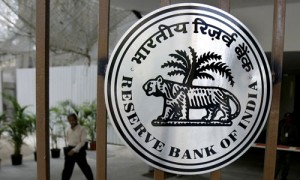 Anticipating a significant rate cut by the RBI, disappointed real estate community has ring alarm bells and forecast more slump due to the high interest rate regime. Pointing out that the capital and labour intensive sector plays a key role in employment generation and accelerating growth, industry body CREDAI says the government has also been losers of revenue due to neglect of the sector and risks attributed to real estate and the RBI advisories against lending to real estate have only harmed the sector and made housing costlier for consumers, apart from affecting the economy.
Anticipating a significant rate cut by the RBI, disappointed real estate community has ring alarm bells and forecast more slump due to the high interest rate regime. Pointing out that the capital and labour intensive sector plays a key role in employment generation and accelerating growth, industry body CREDAI says the government has also been losers of revenue due to neglect of the sector and risks attributed to real estate and the RBI advisories against lending to real estate have only harmed the sector and made housing costlier for consumers, apart from affecting the economy.
CREDAI National President Lalit Kumar Jain has categorically expressed his disappointment at the RBI maintaining status quo in its credit policy. “RBI appears to be sadly ignorant of the importance of real estate sector in the national economy and GDP. The status quo on interest rates will further dampen the sentiment though RBI may justify its action. “I hope further policies will see rate cuts positively and conservatism does not become a lasting attitude,” says Jain.
Sanjay Dutt – Executive Managing Director, South Asia, Cushman & Wakefield, says from the point of the real estate sector, a further rate cut would have resulted in positively influencing the sentiments within the sector. However, reduced CRR and Repo/Reverse rate cuts do not automatically translate into reduced interest rates for mortgages, which would have pushed the sales volumes in the residential section up higher.
“Banks have to take into account other factors before deciding on lowering their interest rates for retail customers. For developers, in any case, financing options from the banking industry have been restricted since some time and they have had to mainly depend on other sources such as ECBs and PE investments. Hence, they will mostly remain in a status quo. The main concern for both buyers and developers is related to the inflationary trends that still persist in the economy, as their finances get impacted on a much bigger level. Our outlook for the sector remains cautious, but still positive as there are transactions still taking place at a sustainable pace and volume,” says Dutt.
Gaurav Mittal, Governing Council Member, CREDAI and Managing Director, CHD Developers rues that the RBI has taken a cautious stance by keeping the repo rate and the CRR unchanged. “The step has been taken owing to the strong inflationary pressures. However, considering the plight of the productive sector and the lack of funds, especially in the real estate sector, a rate cut would have been a boon and fuelled growth. RBI must take cognizance of this fact and we hope for a rate cut in the next policy to induce more liquidity in the market,” he says.
“There was this expectation that some policy action would come in the light of slower growth. There were expectations that both the repo rate and CRR (cash reserve ratio) would be cut. It was disappointing to that extent,” says Ashok Tyagi, Group Chief Financial Officer, DLF.
Paras Gundecha President of MCHI also expressed his disappointment at the RBI maintaining status quo in its credit policy. “It seems the RBI is undermining the importance of real estate sector in India’s economy and GDP. The real estate sector plays a vital role in generating employment opportunities and accelerating the growth of the nation. Being the financial hub of the country, the real estate sector in Mumbai will be negatively impacted by RBI’s status quo on credit policy,” he says.





